This week's herbal challenge in The Herbal Hive community is about immunity. When I think of immunity, my go to is fire cider, or fire tonic, or a 'cannonball shot' as I've seen in called in one of my books, probably because it packs a punch. I'm a fire tonic pusher - whilst hardly anyone takes me up on the offer, I like to think they at least know about it, and might eventually try making it. It's one of the easiest medicines to make, and can be used as a preventative or to ease symptoms of colds and flu and their symptoms, such as coughs, upper respiratory infections, sore throats and so on.
So, I'm gunna tell you about it again for like the 100th time on HIVE, and I want you to go and make it and tell me what ya reckon.
For this post, I want to do it a little differently though, walking you through my garden and showing you what I put in my fire cider. The only thing I can't show you is the turmeric and ginger, as it still hasn't sprouted in the polytunnel yet. Ginger is particularly awesome as it's a pain reliever and good for digestive weakness, and you want good gut health for immunity. It's a lifting, boosting, antioxidant cocktail of amazingness.
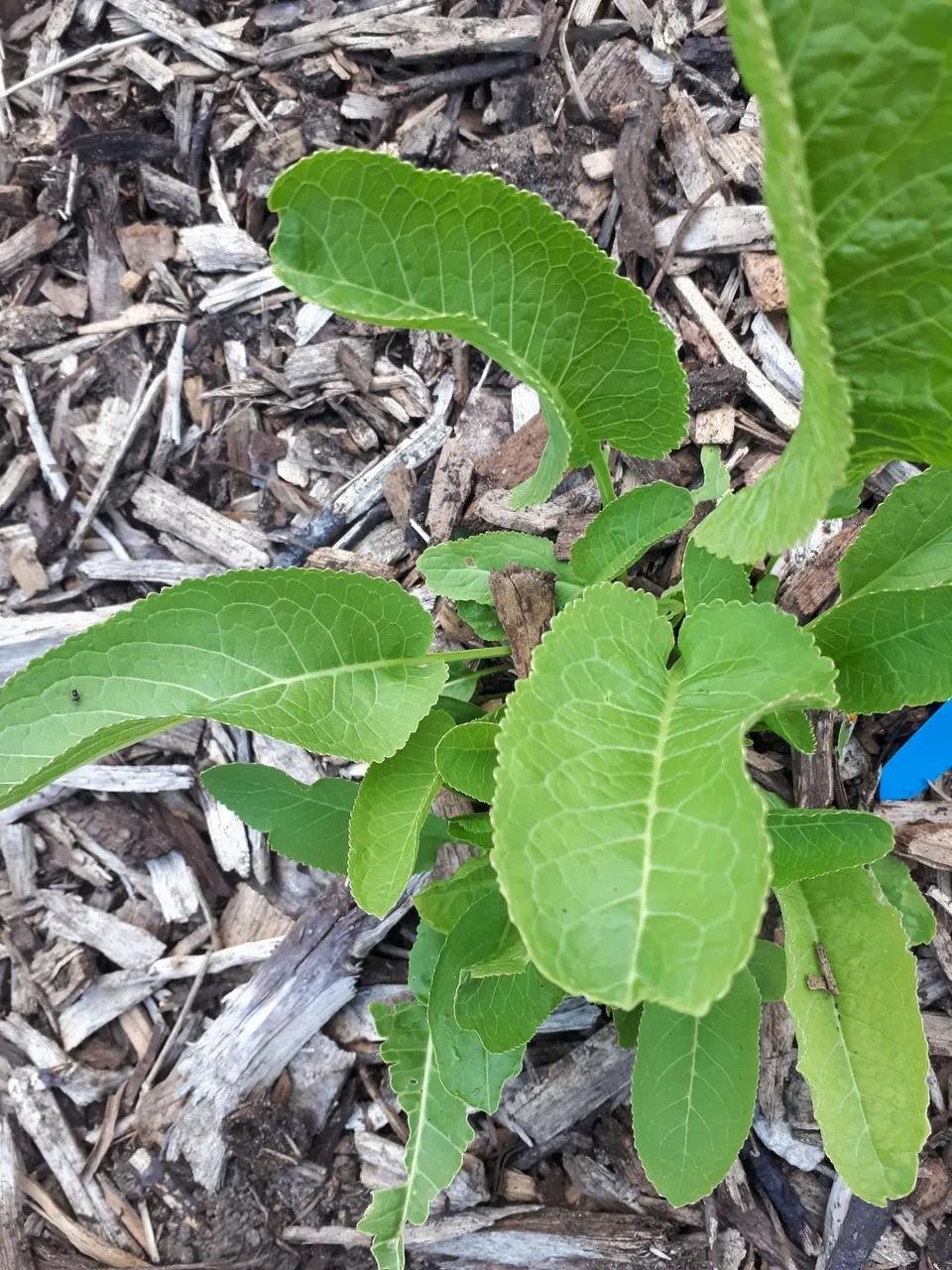
Wait - rewind - big discovery alert - is fire tonic called thus because all the plants in it are warming? The original recipe, and the one you find most often on the internet, contains chilli, so if you've had a swing of a chilli anything you'll know exactly why it's called fire tonic. But here's the rub - I don't often put chilli in it. Why? I don't know. I like to drink a dose in water in the morning, like a cordial. It kick starts my day, warming my insides, and is fantastic for my digestion. Chilli doesn't seem part of a morning equation for me.
Horseradish expels the phlegm in lungs, helps with fever and chills - it's full of vitamin C. Did you know you can eat the leaves? They used to use it for scurvy! I like to throw in rosehips or blackcurrants in season for their vitamin C contain, and lemons of course. I find chop the leaves into salad.
Then there's nasturium, which doesn't grow particularly well in my garden, but she's trying. Bloody chickens, I say, trampling the seedlings and eating the seeds. I got some more seedlings from a woman who lives locally, as it's taking over her garden. I tried telling her that it's high in vitamin C and rather than treat it as a weed, she should be putting it in her salads, and the flowers in a table vinegar. Maybe she will, maybe she won't.
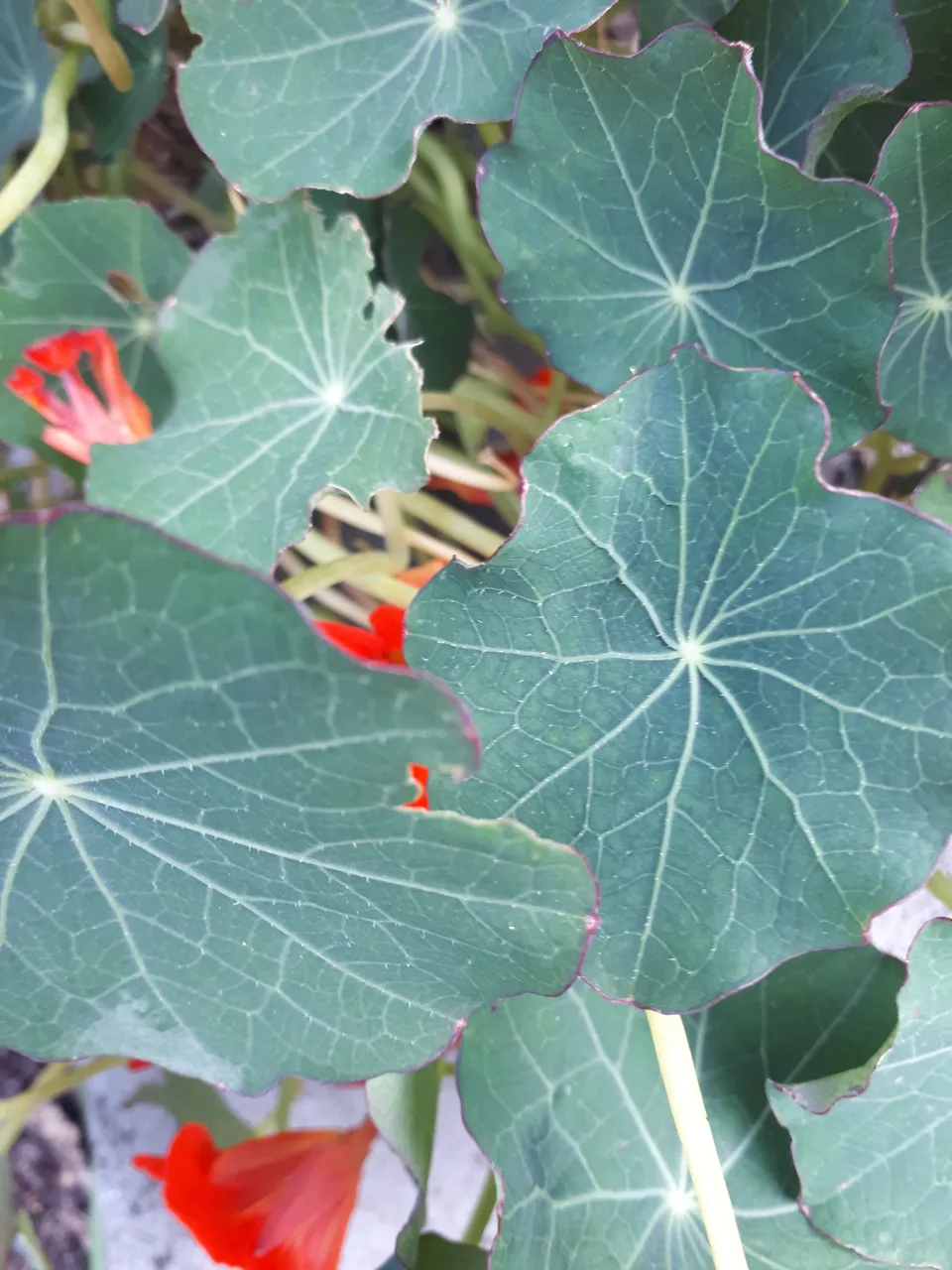
Garlic, of course, is kickass for immunity. We eat the green strap leaves as they are growing and I make a fermented garlic honey which is oh so tasty. Garlic helps move mucus. The fact that it's sometimes called Russian penicillin is quite telling. It's energetics are warming, spicey and drying, which suit a fire cider perfectly.
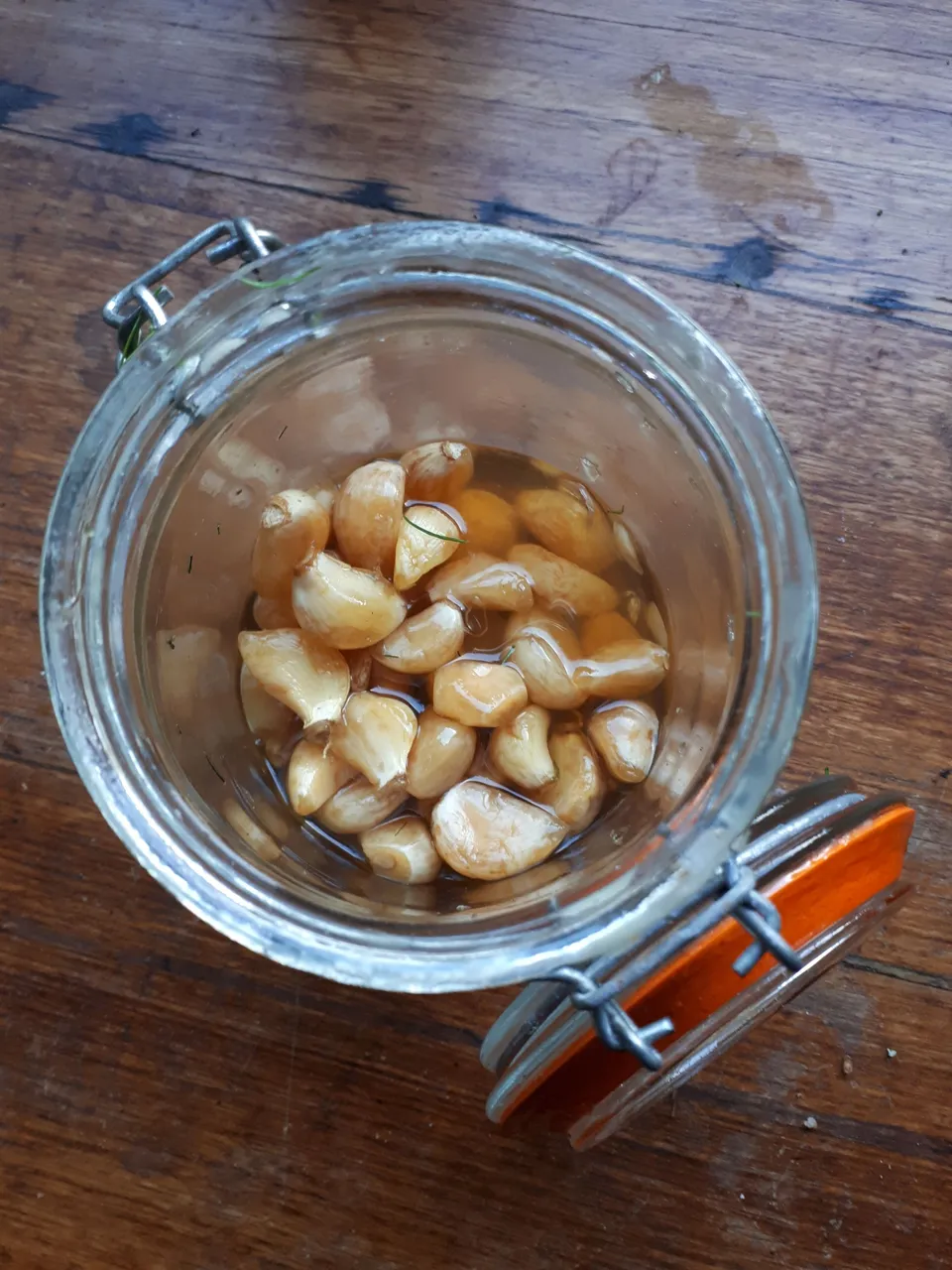
Dear oregano is also a legend, as is thyme - that's one I remember from childhood, the old steam inhalation to help with my asthma and loosen phlegm. It's also good for every day support. Rosemary too - it aids respiratory when recovering from colds and flu but it's also a heart medicine.
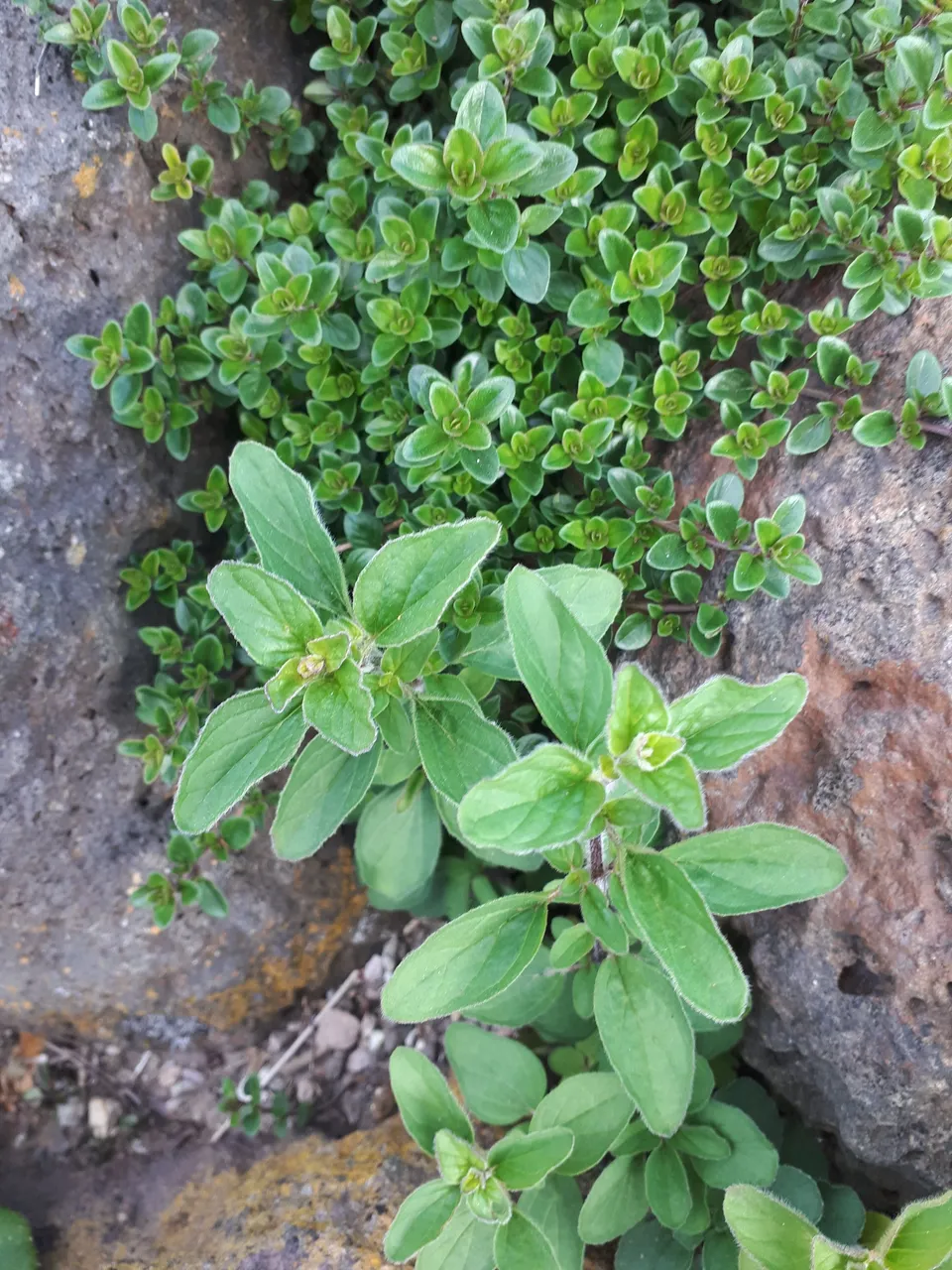
All that planty goodness goes in the jar for the fire cider, and is covered in apple cider vinegar and left for about two months. I make it about once a month so I always have some on the go. Some recipes will call for honey, but I don't need the sweetness (although honey has it's own medicinal benefits, of course).
I drink it like you would a cordial, but I also douse my salads in it.
Which brings me to how we create immunity through everyday eating of herbs. From gut health (lots of roots contain pre biotics, such as dandelion, yakon or elecampane) to possessing antiviral, antibiotic, antiinflammatory, anticancer and a whole lot of other antis, finding ways to get herbs into your diet is a must for natural immunity.
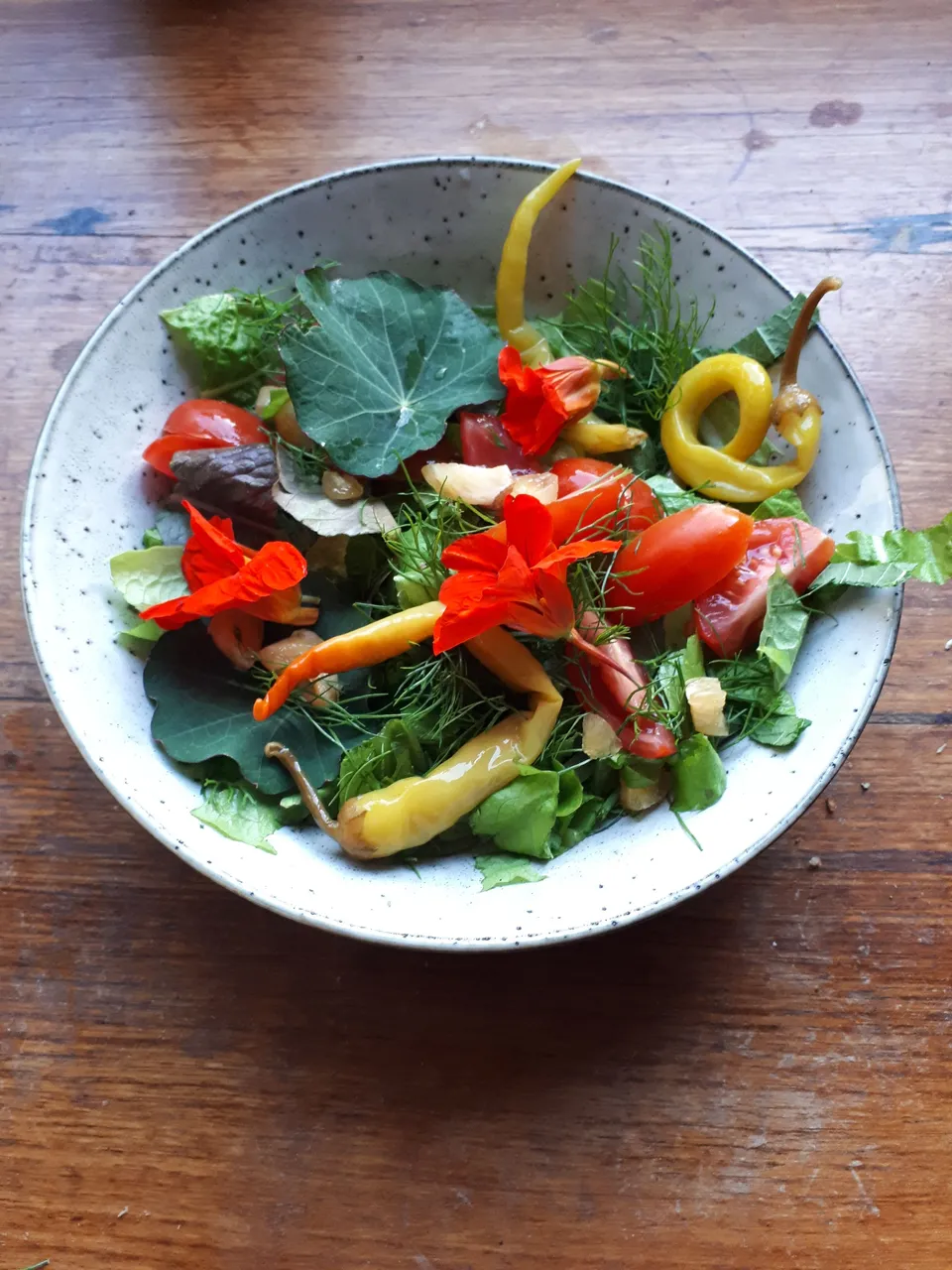
Take tonight's salad, for instance. It contains:
- nasturium leaves, finely sliced
- a small horseradish leaf, finely sliced
- fennel fronds
- nastursium flowers
- tomatoes, lettuce, pickled peppers
- a generous splash of fire cider
- home preserved lemons
- fermented honey garlic
Eating plants as part of your every day diet works to prevent illness and nourish in all kinds of ways.
And don't even get me started on my excitement about 'shrooms. My husband got me an online course for shroom growing for my birthday, but I got started already with a terrarium for growing reishi mushrooms. Reishi affect white blood cells and immune function, and has been lauded as beneficial for cancer. I find it amazing for stress, and supporting your body's stress response is really important for immunity.

I have only conversationally dipped into ways I support my immune system through eating plants, particularly herbs and reishi, without labouring the science, because that's something you can easily do by researching online. Everything I eat is perfectly safe for me, but it might not be for you, so I will leave you to do your own research. But people have been eating plants for their immune systems forever -I encourage you to embrace herbs as a big, big part of your daily diet!
With Love,


The Herbal Hive Community
Are you on HIVE yet? Earn for writing! Referral link for FREE account here

